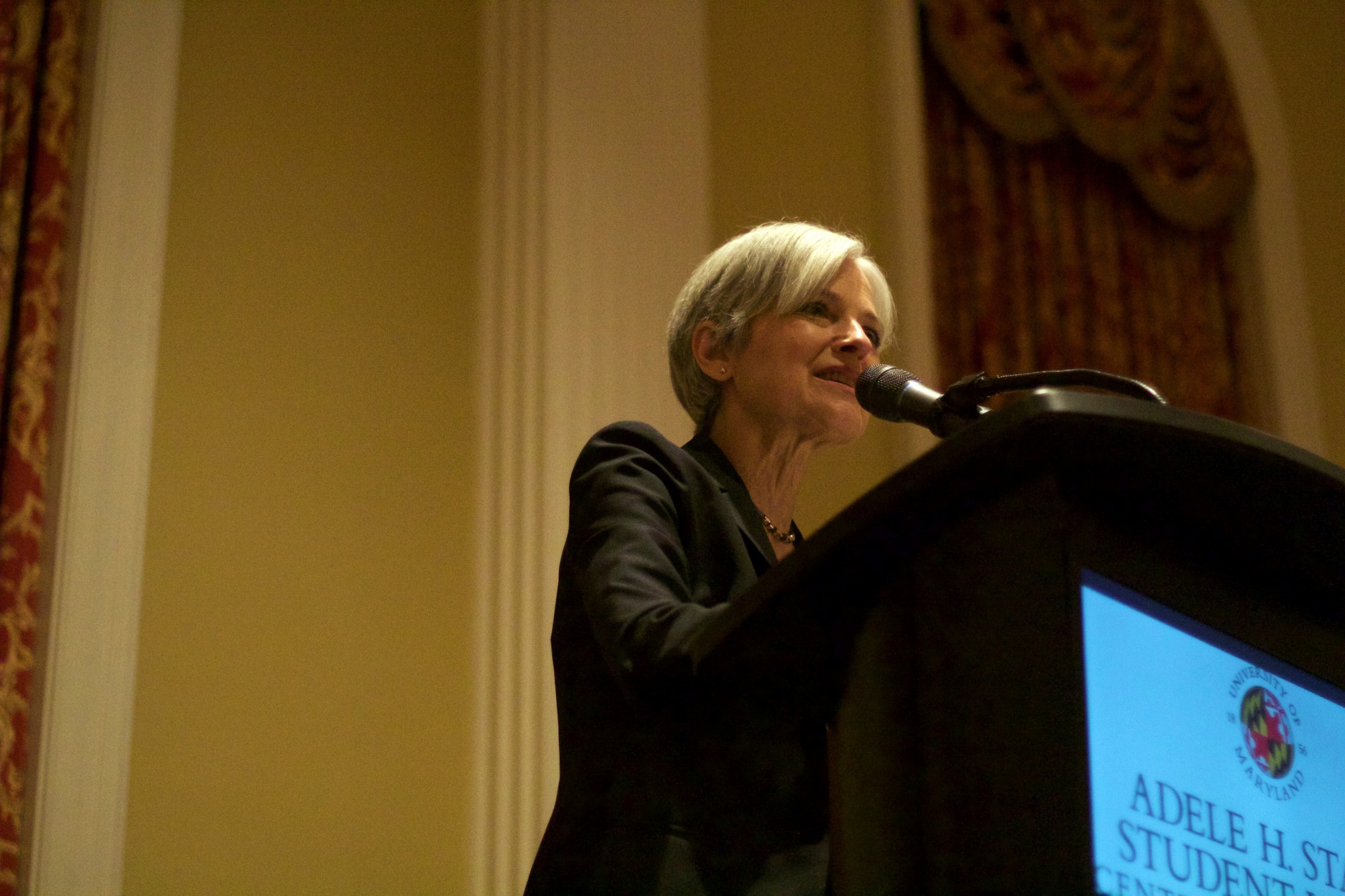Third party candidates in the 2016 election received little love from University of Maryland students on Tuesday.
About 2,200 student voters cast their ballots in Stamp Student Union, and excluding about 750 provisional ballots, 41 people voted for Libertarian Party candidate Gary Johnson and 30 people voted for Green Party candidate Jill Stein.
Third party voters aren’t supposed to be real threats to the Republican and Democratic candidates, said Robert Koulish, a government and politics professor specializing in American politics. Rather, they exist to bring attention to certain issues that may not be covered by the two front-runners, he said, noting that it’s very unlikely that a third party candidate will ever win an election.
In an election year like this one, where the two front-runners had very low approval ratings, many people typically don’t feel comfortable voting for either of the front-runners, said government and politics professor Lilliana Mason, who specializes in American politics.
However, Koulish said because the stakes in this election were too high, many voters felt strongly that voting for a third-party vote would be a “wasted vote.”
“They’re voting … against the other candidate, and I think rather than risk electing the candidate that they don’t want to see in office, they would choose to vote for the other major candidate,” Koulish said.
It’s also a tendency for voters to side with whatever party they typically align with, Mason said.
“As you get closer to Election Day people tend to come home — people who are in the party but said they were going to vote for a different person, they vote for their party’s candidate because they know it’s a symbolic act at best to vote for a third party candidate,” she said.
This trend was confirmed in polls throughout this election season, she added, noting that the number of third party voters declined as the election approached.
However, freshman studio art major Zarin Baksh said she voted for Stein, despite knowing she wasn’t likely to win. Baksh was originally going to vote for Democratic presidential nominee Hillary Clinton as the “lesser of two evils,” she said, until her brother brought Stein to her attention.
“You should vote for the candidate you believe in,” she said, “not just for the one you think will and should win. Many people vote without knowing what the candidate they choose stands for, but voters should look at a candidate’s entire platform before making a decision.”
But for junior Matt Wheeler, a family science major, voting for a third party candidate is just some voters’ way to avoid voting for a candidate they dislike.
Some people are almost “choosing to not choose, but still getting a sticker,” he said.



